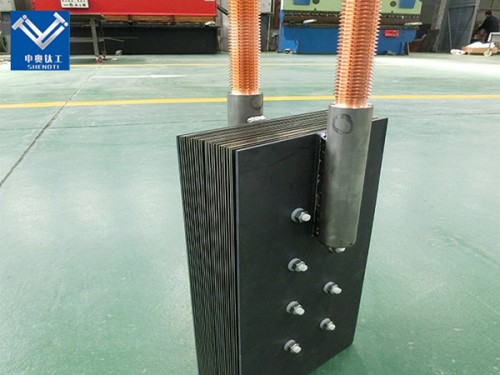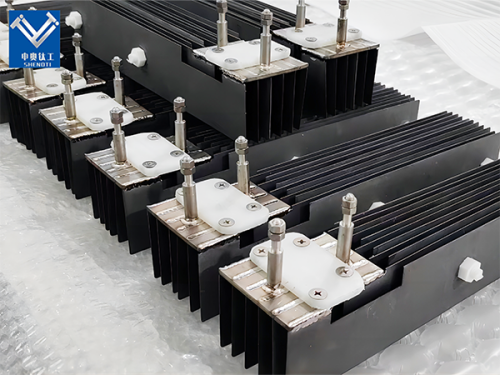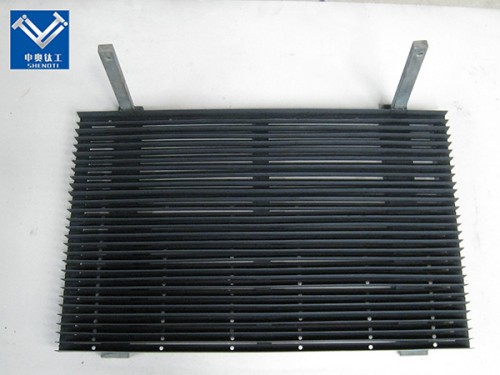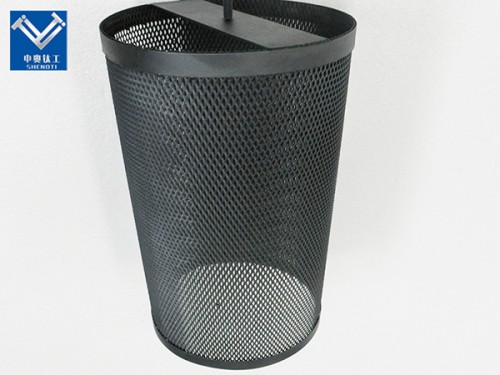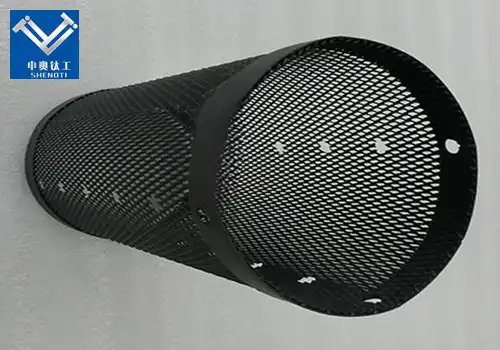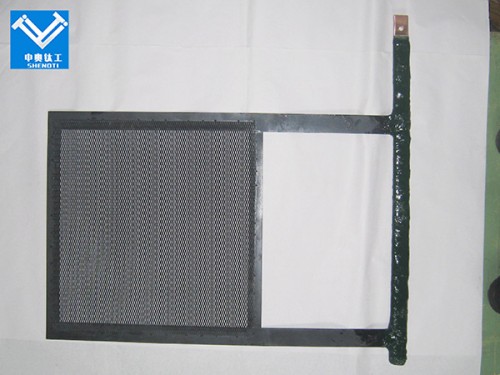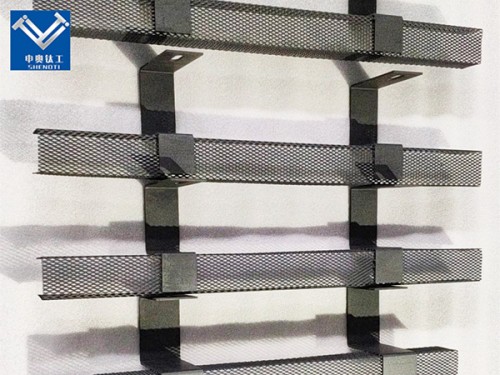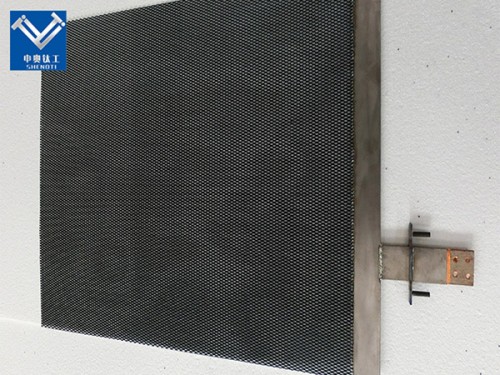
What is a Titanium Anode for Electrolytic Sterilization and Algae Removal?
2025-09-08 17:11:07
In industries and public facilities where water quality is critical, innovative disinfection technologies are replacing traditional chemical treatments. Among them, the titanium anode for electrolytic sterilization and algae removal has become a leading choice due to its durability, efficiency, and eco-friendly operation. This advanced material ensures safe, long-term performance in diverse water treatment applications ranging from swimming pools to industrial circulating systems.
What is a Titanium Anode for Electrolytic Sterilization and Algae Removal?
A titanium anode for electrolytic sterilization and algae removal is a specialized electrode designed to generate strong oxidizing agents such as chlorine, ozone, or hydroxyl radicals through electrochemical reactions. By leveraging these reactive species, the system effectively eliminates bacteria, viruses, and algae without requiring the addition of external chemicals.
Base Material: Titanium is selected for its excellent corrosion resistance, light weight, and strength.
Surface Coating: A mixed metal oxide (MMO) or platinum group metal coating is applied to enhance catalytic activity and extend service life.
Functionality: The anode facilitates water electrolysis, generating disinfectants in situ, reducing operational costs and minimizing secondary pollution.
Compared with chlorine dosing or ultraviolet sterilization, this method offers continuous sterilization, longer effectiveness, and environmentally friendly operation.
Key Features of Titanium Anode for Electrolytic Sterilization and Algae Removal
1. Exceptional Durability
Titanium, when combined with MMO or platinum coatings, resists aggressive environments including high salinity, acidic, or alkaline water. The typical lifespan ranges from 5 to 10 years depending on operating conditions.
2. High Current Efficiency
The electrode ensures efficient electron transfer, producing strong oxidants at lower energy consumption. This not only reduces power costs but also enhances sterilization speed.
3. Eco-Friendly Water Treatment
By producing sterilizing agents directly in water, the system avoids transportation, storage, and dosing of hazardous chemicals. It helps industries meet modern environmental standards.
4. Low Maintenance
Unlike conventional electrodes, a titanium anode for electrolytic sterilization and algae removal requires minimal cleaning and maintenance, providing stable performance over years of operation.
Manufacturing Process of Titanium Anode for Electrolytic Sterilization and Algae Removal
The manufacturing process of titanium anode for electrolytic sterilization and algae removal involves precise engineering steps to guarantee efficiency and reliability:
1. Selection of Titanium Substrate
High-grade titanium (typically ASTM B265 Grade 1 or Grade 2) is chosen for its superior corrosion resistance and formability.
2. Surface Pretreatment
The titanium surface undergoes mechanical polishing, sandblasting, and acid cleaning to remove oxide films and impurities. This step ensures strong adhesion between the titanium base and coating.
3. Coating Application
A thin catalytic layer is applied, often comprising ruthenium oxide (RuO₂), iridium oxide (IrO₂), or platinum. These coatings provide excellent electrochemical performance.
4. Thermal Treatment
The coated titanium is sintered at controlled temperatures, ensuring uniform coating crystallization and improved adhesion.
5. Quality Testing
Every titanium anode is tested for current density, coating uniformity, and service life expectancy before delivery.
This meticulous process ensures that the electrodes provide consistent sterilization and algae removal efficiency across various applications.
Technical Parameters of Titanium Anode for Electrolytic Sterilization and Algae Removal
Base material: Titanium (Grade 1 or Grade 2)
Coating: MMO (Ru-Ir-Ti-O₂) or platinum
Operating current density: 50–200 A/m² (depending on system design)
Cell voltage: 3–12 V
Service life: 5–10 years under normal operating conditions
Working medium: Fresh water, seawater, industrial wastewater, and swimming pool water
These specifications can be customized to meet client requirements for specific industries and operating environments.
Applications of Titanium Anode for Electrolytic Sterilization and Algae Removal
1. Swimming Pools and Spas
Traditional chlorine-based treatments often lead to unpleasant odors and skin irritation. By using a titanium anode for electrolytic sterilization and algae removal, facilities can maintain crystal-clear water without harmful chemical residues.
2. Industrial Circulating Water Systems
Factories, power plants, and steel mills rely on circulating cooling water systems. Titanium anodes prevent microbial growth and algae formation in pipelines and heat exchangers, ensuring efficient heat transfer and extended equipment life.
3.. Drinking Water Treatment
Municipal water plants use titanium anodes to generate disinfectants safely and sustainably, providing clean drinking water without carcinogenic by-products like trihalomethanes.
4. Aquaculture and Fisheries
Fish farming operations utilize titanium anodes to sterilize water and suppress algae growth, protecting aquatic life and improving yield.
5. Seawater Desalination
Desalination plants adopt titanium anodes to prevent biofouling and algae accumulation in pre-treatment stages, improving reverse osmosis efficiency.
Case Studies of Successful Applications Titanium Anode for Electrolytic Sterilization and Algae Removal
1: Municipal Swimming Pool in Europe
A large public swimming facility adopted titanium anodes, reducing chemical costs by 40% while improving water clarity and user comfort.
2: Industrial Cooling System in Asia
A steel manufacturing plant installed titanium anode systems in its cooling towers. The result was a 35% reduction in biofouling, leading to increased equipment efficiency and lower energy costs.
3: Aquaculture Farm in South America
By integrating titanium anode technology, a shrimp farm significantly reduced algae-related water problems, achieving a 20% increase in production capacity.
Industry Standards and Certifications
Manufacturers of titanium anode for electrolytic sterilization and algae removal adhere to international standards such as:
ASTM B265 for titanium materials
ISO 9001 for quality management systems
CE/UL certifications for electrical safety
Compliance ensures reliable product performance and international market acceptance.
Why Choose Titanium Anode for Your Water Treatment System?
Long lifespan and durability in harsh environments
High electrochemical efficiency with low energy costs
Eco-friendly water treatment without hazardous chemicals
Wide adaptability across industries and water types
Proven track record in real-world applications
For companies seeking long-term solutions to sterilization and algae removal, investing in titanium anode technology ensures safety, sustainability, and cost savings.
Conclusion
The titanium anode for electrolytic sterilization and algae removal represents a cutting-edge solution for modern water treatment challenges. By combining titanium’s inherent strength with advanced coating technologies, these electrodes deliver high performance, long service life, and environmentally sustainable sterilization.
Whether applied in municipal, industrial, or recreational water systems, titanium anodes provide reliable algae control and sterilization without the drawbacks of traditional chemical methods.
Email: zh@baojiti.com.cn
Website: www.shenaocladplate.com
Location: Baoji City, Shaanxi Province, China
YOU MAY LIKE











